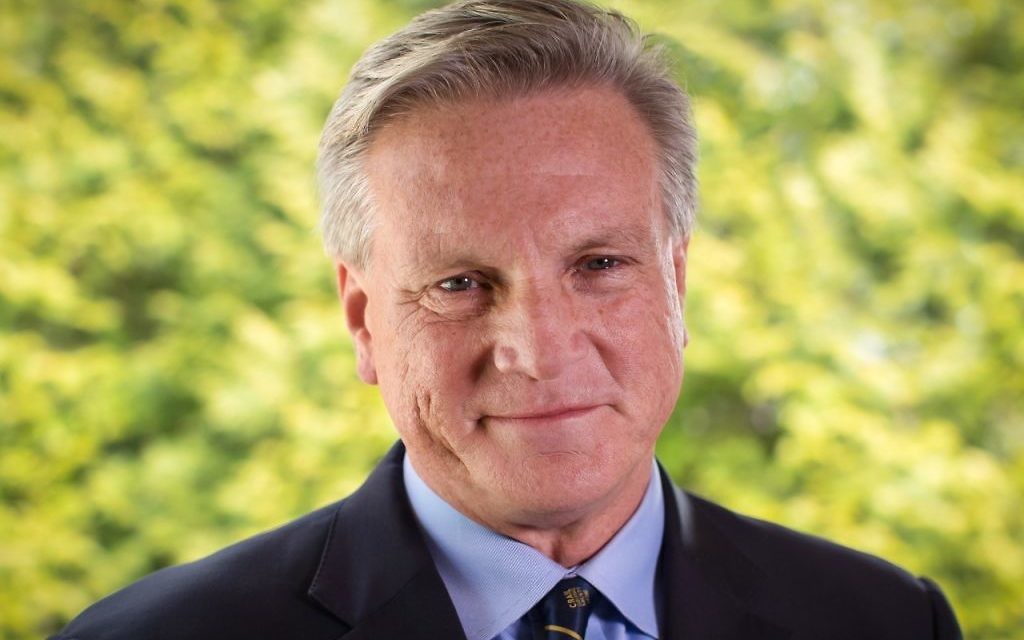Term Limits Are Key, Wilson Says
A Zaxby's franchisee emphasizes the need to replace professional politicians and end the bureaucracy.
Solving the nation’s many problems begins with one simple act, in the eyes of small-business man Kurt Wilson: the passage of the 28th Amendment, which would limit members of the U.S. House and Senate to two four-year terms of office, just like the president.
It’s an idea Wilson, who is running as a Republican in the 6th Congressional District, didn’t care for 25 years ago but now embraces it as the only way to replace career politicians with normal concerned citizens in Washington and restore the United States to its proper place as “the greatest country that’s ever been on the face of the Earth, the greatest force for humankind in history.”
Term limits, the elimination of special pensions and health insurance for members of Congress, and the reduction of legislative sessions to three or four months would break up the “House of Lords” mentality on Capitol Hill, Wilson said. That shift, in turn, would enable Congress to reverse the national debt, balance the budget and create a surplus, repeal the 16th Amendment to eliminate the current income tax and replace it with a flat income tax or a fair consumption tax, and derail and defund the federal bureaucracy.
Get The AJT Newsletter by email and never miss our top stories Free Sign Up
Wilson, who has lived in north Fulton since 1986 and has a business that operates five Zaxby’s franchises in Alabama and develops related commercial real estate, is running to be one of those citizen legislators and to try to effect change as a “junior flunky congressman” because he said a win for a candidate on a term-limits platform in the 6th District would gain national attention. Hesitant supporters of the idea in Congress would come forward, and similar candidates would run in districts across the country.
“We need a reformation,” Wilson said.
Although he is a conservative Republican propelled by a fervent Episcopal faith, Wilson didn’t start that way. He grew up in a liberal household, and he was unchurched until the family ended a period of at least yearly moves when his father became the vice president of academic affairs at the University of Alabama in Huntsville in 1972.
Wilson said he’s not sure whether his mother was motivated by the lack of religion for her three children or felt the need to close a gap in her political résumé (she got involved with the League of Women Voters in Huntsville and unsuccessfully ran as a Democrat for Congress in 1976), but the family began going to the Episcopal Church. “I took to it like a fly to sugar,” Wilson said. “G-d kept showing Himself to me in ways of love that were humbling and motivating.”
His father never cared for church, Wilson said, but he did try to convert to Judaism twice. “The rabbi said, ‘Why would I want you to be a Jew? You’re not a very good Christian.’ ”
In addition to religion, Wilson said his parents gave him two gifts: a voracious appetite for reading and a blind spot for differences of race, religion and ethnicity. He said he didn’t realize that two of the three close friends of his parents whom he called “uncle” were Jewish until he was grown up, and he didn’t think anything of going to a black friend’s house or having him at his house.
“I remember being called a bleeding-heart liberal,” Wilson said with a laugh.
He was underachiever through high school, and his father had the answer: the Army. Wilson enlisted in the Army Reserve in April 1980, and he said basic training turned him into an overachiever. He got an ROTC scholarship for his junior year in college and intended to be a career officer. But a physical found asthma, and he was discharged before his senior year.
Wilson thinks the country would benefit if everyone did military service after high school, following the example of Israel. Young people would gain a sense of patriotism and a connection to something bigger than themselves, and if most of the nation had a connection to someone in the service, there would be more pressure not to go to war except in cases of vital national interests.
National service isn’t the only thing Wilson admires about Israel. As a Christian, he said, he honors the Jewish people and their state as G-d’s favorites, and he appreciates that Israelis are surrounded by people who want to wipe them out.
“My stance is pro-Israel, pro-Israel, pro-Israel, and the United States is its strongest ally and will continue to be its strongest ally, but not just in talk, but in terms of making sure that the state of Israel stays viable and protected militarily, economically, politically,” Wilson said.
He doesn’t have much sympathy for the Palestinians because of their unwillingness to accept Israel. “That two-state nonsense? If Israel negotiates that, fine,” he said. “Our job is to support Israel.”





comments